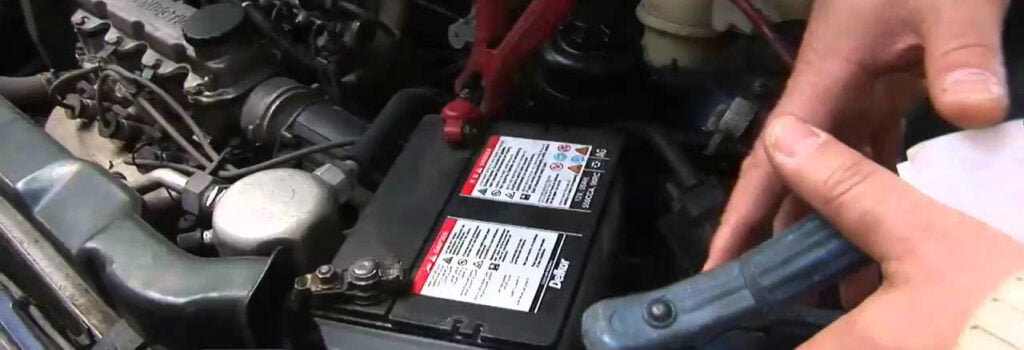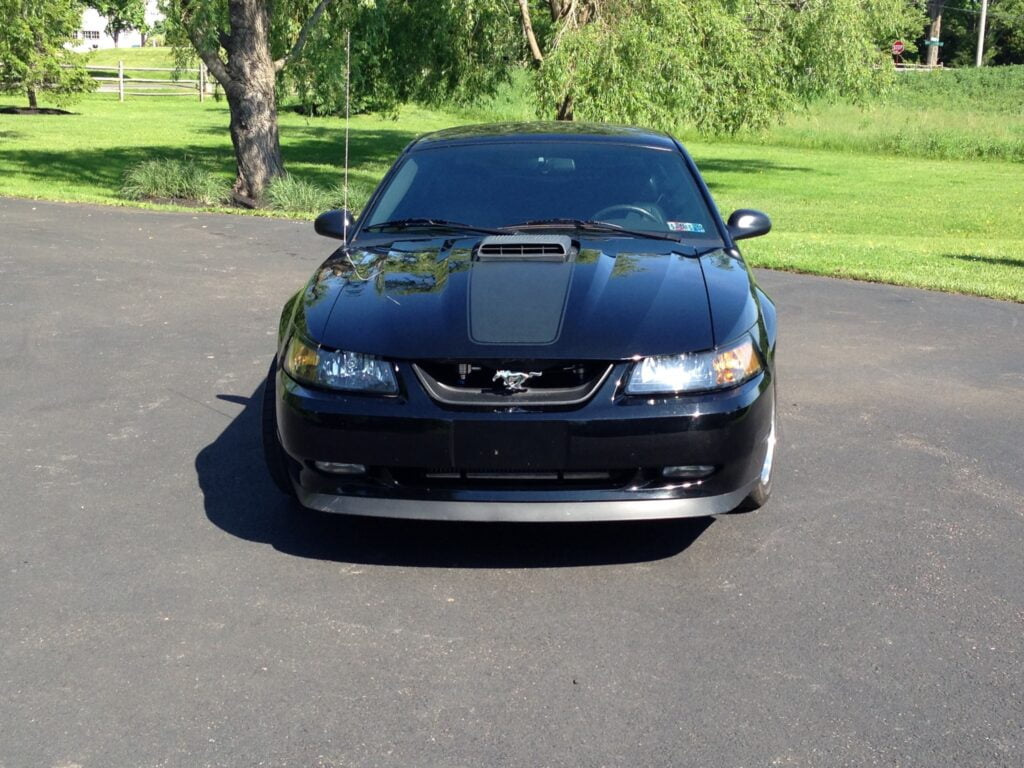Hearing a faint clicking sound when you try to start your car can make anyone uneasy. This issue pops up for drivers all the time, and, more often than not, it points to a problem with the battery, starter, or electrical connections. The sound usually means the starter solenoid is firing, but it’s not getting enough power to actually crank the engine.
Ignoring this noise can lead to bigger headaches, like being left stranded or even damaging other parts in your starting system. It’s important to know what this sound means and what to check first. In this guide, you’ll find clear explanations for the most common causes, along with straightforward steps you can take to troubleshoot and fix the problem before it gets worse.
If you’re in Feasterville-Trevose, PA, or anywhere in Bucks County, Hank & Sons Auto is your trusted solution for starter repair and diagnostics. Our ASE Certified Master Technicians each have over 40 years of experience diagnosing and fixing starting and charging system problems. We serve Feasterville Trevose, PA and surrounding areas with honest, expert automotive service.
📞 Hearing that clicking sound right now? Call Hank & Sons Auto at 215-322-5007 for diagnostics.
Table of Content
- Understanding the Clicking Sound When Starting Your Car
- Common Causes of a Faint Clicking Starter
- How to Diagnose a Clicking Starter
- When to Call a Professional Mechanic
- Conclusion
Understanding the Clicking Sound When Starting Your Car
That faint clicking sound from the engine bay when you turn the key or press the start button can be unnerving. You expect the engine to roar to life, but all you get is a click—or sometimes several rapid clicks in a row. The type and rhythm of this sound actually point you toward specific problems within your car’s starting system. Let’s make sense of these noises, so you’ll know what your car is trying to tell you.

Photo by Vladimir Srajber
What a Single Click Means
When you only hear a single, solid click as you attempt to start the car, focus on these possibilities:
- Starter motor or solenoid issue. That solid click is the solenoid trying to send power to the starter motor, but the motor itself doesn’t respond.
- Weak battery or poor connection. Sometimes a nearly dead battery or corroded battery terminals can mimic these symptoms. The solenoid gets just enough juice to engage, but not enough to crank.
- Wiring trouble. Damaged wiring in the starter circuit can stop power from reaching where it needs to go.
A single click is like knocking on a locked door—the starting system tries, but something major blocks it from opening up and spinning the engine.
What Rapid Clicking Sounds Indicate
A rapid, repeating clicking (almost like a buzzing or ticking) usually means something different from a single, pronounced click. Here are the most common reasons:
- Dead or weak battery. Rapid clicking is the classic sign. There’s enough power to trigger the starter solenoid, but not enough to keep it energized, so it cuts out and clicks over and over.
- Corroded or loose battery terminals. Even a good battery can’t help if the connections are dirty or loose. The breaks in contact lead to that clicking cycle.
- Failing alternator. If your battery keeps dying, the alternator might not be recharging it—so over time it loses enough juice to start the car, causing rapid clicks.
Think of this as your car’s version of stuttering—it’s trying again and again, but the spark just isn’t there.
Why the Type of Clicking Matters
The pattern of the clicking noise gives critical hints about the source of the problem. Here’s a simple way to remember:
| Clicking Sound | Probable Cause | What to Check First |
|---|---|---|
| Single Click | Starter motor, solenoid, battery | Starter, battery charge, cable tightness |
| Rapid Clicking | Weak battery, connections | Battery level, terminal corrosion, alternator |
A single loud click points toward something mechanical within the starter system. Rapid multiple clicks nearly always mean an electrical problem, usually with the battery or its connections.
Knowing which clicking you hear can save you hours of trial and error—and keep you from changing out expensive parts that aren’t the real problem. Your ears are one of your best diagnostic tools when it comes to figuring out what’s happening under the hood.
Common Causes of a Faint Clicking Starter
A faint clicking sound when you twist the key or hit the starter button is your car’s way of saying something’s not right. Most often, this noise comes from the starter solenoid not receiving enough power to fully engage. The problem almost always traces back to a handful of familiar trouble spots: the battery and its connections, the starter itself, or an electrical power issue somewhere else in the system. Let’s break down the most common reasons you’ll only get clicks instead of a cranking engine.
Battery-Related Problems

Photo by Erik Mclean
The battery is almost always the main culprit when your car clicks instead of starting. Here’s why:
- Weak, dead, or discharged battery: If you hear a rapid clicking, the battery doesn’t have enough juice to spin the starter. Leaving headlights or an interior light on overnight, running the stereo with the engine off, or even making lots of short trips that never give the battery time to recharge can leave it drained.
- Extreme weather: Cold snaps make batteries sluggish, while heat speeds up their aging. On a frosty morning, the battery’s chemical reaction slows down, which means less power when you need it most.
- Age matters: Most batteries give up after 3 to 5 years. Old batteries have trouble holding a charge and may die without warning, sometimes leaving you with that dreaded click on an early workday.
- Corroded or loose terminals: If you see a white or green powder around the terminals, that’s corrosion, and it blocks power just like a dying battery would. Loose or dirty cables have the same effect, making the car think the battery is bad even when it isn’t.
Real-world example: Imagine you get in your car after a long cold night, hit the key, and all you get is rapid clicking. You pop the hood and find crusty gunk all over the battery terminals. Cleaning them and tightening the cables often gets the car going again.
Key battery symptoms to listen for:
- Clicking sounds with no crank
- Dim dome or dash lights
- Needing frequent jump-starts
Starter Motor and Solenoid Troubles
The starter motor is the muscle that turns your engine over, and the solenoid is its boss. When you turn the key, the solenoid pushes the starter gear into the flywheel, then sends power for the motor to spin. If either one fails, you’ll hear a single solid click or nothing at all.
Classic signs of a starting system issue include:
- One, solid click with each key turn, but engine won’t spin
- No sound at all, even with a good battery
- Headlights and interior lights stay bright (showing the battery has power)
A worn starter motor draws extra current or refuses to engage. Sometimes smacking the starter gently with a wrench can get a stuck spot to move, but that’s a temporary fix at best.
A failed solenoid won’t send power to the starter, so you only get a click from under the hood. Some cars even have intermittent problems—one day it starts, next day nothing but clicking.
Real-world example: After replacing an old battery, you still hear a single loud click and the engine stays silent. The lights are bright. In this case, the starter or solenoid likely needs repair.
Alternator and Electrical System Issues
The alternator charges the battery while the engine runs. If it stops working—or if something is wrong in the surrounding wiring—the battery drains down between drives. Eventually there isn’t enough power left to start the car, so you only get clicking.
Things to watch for with the alternator and wiring:
- Loose or broken belts mean the alternator doesn’t spin, so it can’t recharge the battery.
- Bad wiring, relays, or blown fuses cut off the charging system and cause slow battery death.
- Dim lights, flickering dashboard, or warning lights pointing to the charging system.
- Frequent jump-starts even after replacing the battery point to alternator trouble.
Real-world example: You drive all week with no problems, but after a day of errands, the car clicks and won’t start. A mechanic shows a bad alternator belt. Replacing it solves the issue since the alternator finally recharges your battery again.
In summary:
- If the starter just clicks and won’t crank, most of the time the problem is with the battery or its connections.
- Single loud clicks point toward starter motor or solenoid issues.
- Ongoing starting trouble, even with a fresh battery, can mean alternator or wiring faults are to blame.
Diagnosing the cause starts with looking at battery age, checking terminals, and listening for the pattern of clicks—each detail points you in the right direction.
How to Diagnose a Clicking Starter
You don’t need to be a mechanic to figure out what’s causing a faint clicking sound from your starter. A few simple checks at home can save you time, money, and worry. Here are straightforward ways to diagnose the issue before calling a professional.
Make Sure the Gear Selector is in the Right Position
Before opening the hood, always check the gear selector. Most cars will only start in “Park” or “Neutral.” If the lever isn’t fully in one of those spots, the car’s safety switch keeps the engine from starting.
- Jiggle the shifter and try restarting.
- For manual transmissions, fully depress the clutch pedal.
Sometimes, the selector or clutch switch wears out and blocks power to the starter.
Check Battery Terminals for Corrosion or Loose Connections
Corroded or loose battery terminals can mimic a dead battery. This is one of the quickest checks you can do at home.
- Look for white or green powder around the battery posts. This is corrosion and needs to be cleaned off.
- Check if the cables are tight. Gently twist them. A loose cable can block power just like a dead battery.
- Use a wrench to tighten loose terminals snugly—don’t overtighten.
- Clean corrosion with a mix of baking soda and water, using a wire brush or old toothbrush. Dry everything before reconnecting.
Having clean and tight terminals gives your starter the best shot at getting power.
Try a Jump Start
If your battery is weak, a jump start can bring your car to life—and help you pinpoint the problem.
- Connect jumper cables between your car and a good battery (from another car or a jump pack).
- Wait a minute, then try starting your car.
- If the car starts and runs: Your battery is likely bad or drained, or your alternator isn’t recharging it.
- If you still only hear clicking: The issue could be with the starter, solenoid, or another electrical part.
Jump starts help separate battery trouble from deeper problems in the starting system.
Observe the Sound and Dashboard Lights
Listening to what happens and watching your lights can provide more clues.
- Dim or flickering dashboard lights when you turn the key? The battery is too weak, or the terminals are dirty.
- One solid click with normal lights: The starter motor or solenoid is probably at fault.
- Rapid clicks: This usually points to a battery with not enough power to maintain a steady connection.
- No sound or lights at all: The battery is either dead or disconnected.
Use this table for quick reference:
| Symptom | Most Likely Cause | What to Do First |
|---|---|---|
| One loud click, lights stay bright | Starter or solenoid issue | Seek mechanic help |
| Rapid clicks, lights dim or flicker | Weak battery or bad cables | Try jump start, clean terminals |
| No sound, no lights | Dead battery, loose cable | Check battery, tighten cables |
Take Simple Safety Steps
- Use gloves when cleaning battery terminals.
- Never touch both battery posts with metal tools at the same time.
- Work in a well-ventilated area, away from flames or sparks.
When to Get Professional Help
If you’ve checked the basics—gear selector, battery terminals, and tried a jump start—and your car still just clicks or won’t start, it’s time for a technician. Issues deeper in the starter, solenoid, or vehicle wiring are best handled by a pro with the right tools.
Doing these simple checks first gives you confidence, arms you with information, and often gets your car running faster. If you find a problem you can’t fix, you’re already one step ahead when you speak to a mechanic.
When to Call a Professional Mechanic
Most car owners can handle the basics: checking battery connections, giving the starter a jump, making sure the gear shifter is in the right spot. But there are times when it’s smarter, safer, and cheaper in the long run to call in a professional. Guesswork only goes so far, especially when your car refuses to cooperate. Here’s what sets a pro apart and when to stop tinkering and reach out for help.

Photo by Themba Mtegha
Signs It’s Time for a Mechanic
Some problems cross the line from DIY to needing an expert’s touch. If you hit any of these trouble spots, put the wrenches away and get on the phone:
- Repeated clicking after a jump start: If you’ve tried jumping the battery and still get nothing but clicks, the starter or another key part is likely at fault.
- One solid click but no engine turn: This is a clear red flag for a bad starter motor or solenoid.
- Visible electrical damage: Smell burning, see smoke, or spot melted wires around the battery or starter? That’s a safety risk and needs professional tools and care.
- Frequent starting problems: If your car clicks today, starts tomorrow, and then won’t again, this pattern points to deeper issues like wiring faults or failing relays.
- Noise changes: Grinding, whirring, or strange clunks, especially with the clicking, may mean internal starter or flywheel damage.
- Dashboard lights act odd: Flickering lights, warning messages, or gauges failing when you attempt to start often show a serious electrical issue.
If any of the above keeps showing up, stop chasing the problem and call your local shop.
Our ASE Certified Master Technicians at Hank & Sons Auto in Feasterville-Trevose have diagnosed thousands of starting system failures across Bucks County. With over 40 years of experience each, they can quickly identify whether your clicking noise is battery-related, starter-related, or caused by electrical connections.
What a Pro Can Do That You Can’t
A mechanic has diagnostic tools and know-how that home troubleshooting can’t match. When you take your car in, they can:
- Test voltage and current throughout your entire starting and charging system.
- Pinpoint a failing starter, solenoid, relay, or ignition switch with proper bench testing.
- Safely inspect wiring for hidden shorts, melted insulation, or loose grounds.
- Spot oil leaks soaking the starter and causing premature failure.
- Advise on repairs or part replacements before something breaks for good.
Professional service means peace of mind. You get accurate answers and a clear fix, not endless guesswork.
Common Repairs and Typical Costs
It helps to know what you might hear when getting an estimate. Here are some common fixes for starter-related clicking and what shops often charge:
| Repair | Typical Cost (Parts + Labor) |
|---|---|
| Starter motor replacement | $350–$600 |
| Starter solenoid/relay repair | $100–$300 |
| Repair/replace corroded wiring | $75–$250 |
| Battery replacement | $120–$250 |
| Alternator replacement | $400–$900 |
Factors like car make, model, and your region will affect these numbers, but this gives you a quick guide to what to expect. If the repair involves complex wiring or computer diagnostics, the tab can climb higher.
At Hank & Sons Auto in Feasterville-Trevose, we provide transparent pricing with written estimates before beginning any work. Our ASE Certified Master Technicians ensure you receive quality repairs using premium parts, backed by our warranty.
Don’t Wait If You’re Stranded
Getting stuck with a car that only clicks is never fun, especially far from home or after dark. Call for roadside service or a tow if you can’t get the car going safely. Trying to bypass a serious electrical issue could make things worse or risk a fire.
Calling a mechanic when problems keep returning is a smart move that can save you frustration, money, and time down the road.
What Our Bucks County Customers Say
⭐⭐⭐⭐⭐ “Great price” dean stecklair
⭐⭐⭐⭐⭐ “Great price These guys are always great ” Joseph Orndorf
⭐⭐⭐⭐⭐”I highly recommend Hank and Sons for all your vehicle needs.It’s nice to know you’re in good hands.” Wendy Ohlbaum
📱 Read More Reviews → | Leave Your Review →
Conclusion
A faint clicking sound when you turn the key usually means something simple: your car isn’t getting enough power to start. Most of the time, a tired battery, loose cables, or a worn starter is to blame. Catching these early prevents getting stranded or needing a costly tow.
A quick look at battery posts, a jump start, or a check for clean connections can often get you back on the road. Adding these checks to your regular car care keeps your ride reliable and saves you stress down the line.
Take a few minutes once a month to peek under the hood, especially before cold weather hits. Your attention can make all the difference. Thanks for reading—if you’ve had starter troubles or found a simple fix that worked, share your story in the comments. Your experience can help someone else.




